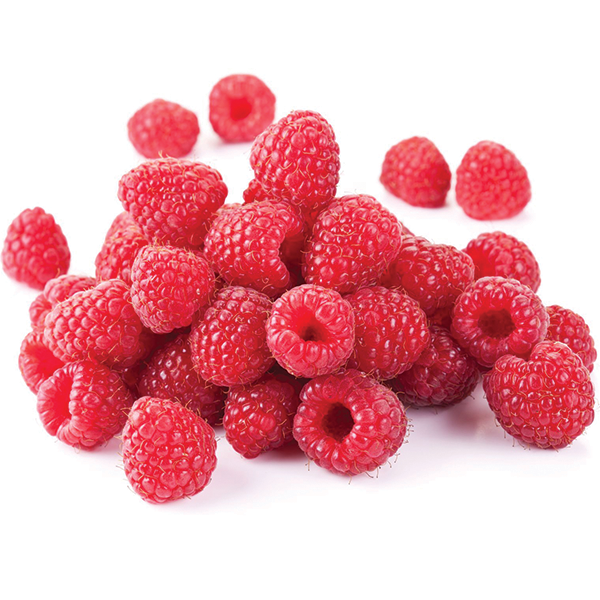
Organic raspberries are a high dollar item that consumers are flocking to buy. More than 15% of all raspberry sales are organic, and sales continue to rise. These sales figures make organic raspberries a must-have item in your produce department
Promote organic raspberries during their peak season – early summer and into the fall. Include them in berry promotions and baking promotions.
Organic raspberries are a versatile fruit so include them in a variety of marketing opportunities. Include them in baking promotions with organic baking items, like organic flour and sugar. They are a great topping for breakfast cereals and ice cream, so cross-merchandise them with those items.
Don’t forget about organic raspberries during the holiday season. They add a festive touch to holiday baked goods. Include organic raspberries in summertime holiday promotions as they are often a part of holiday fruit salads.
Display organic raspberries with other organic raspberries as part of a berry patch display with blueberries, blackberries and strawberries. Consider making your organic berry display the first one consumers see when those berries are on ad. Shoppers are looking for organic raspberries. Don’t make them hard to find.
Golden raspberries are also available as organic so include them in your display to create options for your customers. Stock both types of berries in clamshells to protect the highly fragile berries.
Organic raspberries are extremely perishable. Try to only stock what you know you can move in one day as their high perishability can cause a loss if you don’t move them quickly.
Shipping
Organic raspberries are often shipped in the same carton sizes as conventional raspberries, most often in variations of 6-ounce clamshells. Golden raspberries are often shipped in cartons of 12, 6-ounce clam-shells.
Grades
U.S. No. 1
U.S. No. 2
Handling
Temperature: 32 to 34 F (0 to 1 C)
Relative humidity: 90-95%
Mist: no
Typical shelf life: 2 to 3 days
Highly sensitive to freezing injury. (Likely to suffer injury by one light freezing.)
Product is precooled immediately after harvest to slow decay. It is transported in constant refrigeration because of high perishability. Additional protection against decay and ripening is obtained by charging the load with carbon dioxide while in transit.